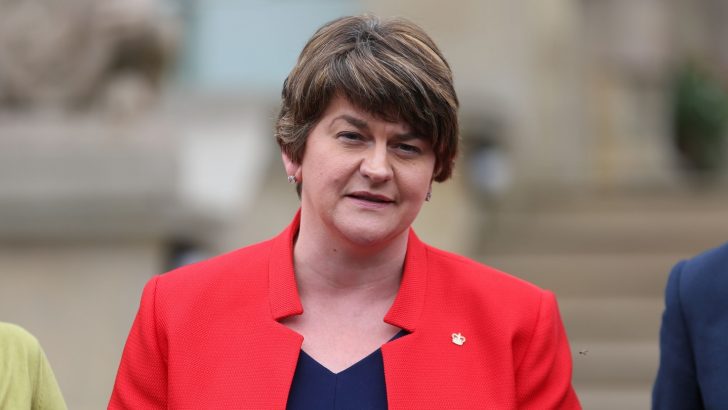The votes have been counted and Northern Ireland is in something of a state of shock. Last week unionists had a 16-seat majority over nationalists in the Assembly. Now, just over a week later nationalism has a total of 39 seats to unionism’s 40 seats. However the DUP, by a majority of one, has more seats (28) than Sinn Féin, which has 27.
It means the DUP can still nominate the First Minister, and a Sinn Féin MLA will still be deputy First Minister (a position equal to the First Minister). No party has sufficient votes to raise a petition of concern and block legislation, such as same-sex marriage and abortion.
To do this a party needs 30 MLAs, nobody has that number now. Nothing is simple in Northern Ireland!
No one knows what will happen next. The parties could agree to form an Executive, and we could still have devolved government. That is unlikely to happen, though.
Expectation
The expectation is that Sinn Féin will refuse to go into government with the DUP for a variety of reasons, and they will then be in the slightly unusual position of having delivered Northern Ireland into the hands of British rule, something they have been opposing for as long as I can remember.
Are unionists and nationalists and others, who rightly want to get back to devolved government really going to be prevented from so doing by Sinn Féin whose constant policy has been to secure a united Ireland? Yet British rule is what they will deliver, unless the parties can make an agreement.
Meanwhile, the move towards Brexit is inexorable. Nobody really knows what Brexit might look like, as far as I can see. There is no road map to leaving the European Union. The post-war dreams of a united peaceful Europe, trading in one common market, have been abandoned in the UK.
So it seems likely that Northern Ireland will face months of direct rule government from London at perhaps the most critical time in the history of the European Union. Who will speak for the people of Northern Ireland if we do not have a government to make representations on our behalf?
Undoubtedly the British government will do its best to ensure that all parts of the UK are treated equally, but Scotland and Wales will have the strong voices of their devolved governments to make their cases. What then of Northern Ireland?
The British government said it would implement the will of the people as articulated in the referendum on the EU. Now they are doing what they said they would, striking out into the deep almost, it seems to me without any knowledge of where they are going or how to get there. Large parts of rest of Europe is equally bemused.
The UK is a net contributor to Europe, which gains between £7billion and £8.5billion as a consequence of the UK’s membership (it seems it is hard to calculate the figures precisely because the UK gains from, for example, EU academic research grants, EU students studying in the UK and other payments to non-governmental organisations).
Overall it seems that leaving Europe will save Britain some £164m a week. However there will be other costs: of leaving, of negotiating and paying for new trade agreements, of managing the state without all the common regulatory apparatus which now exists in Europe. It is going to be very challenging.
Scotland and Northern Ireland did not actually vote to leave, of course. That was done in England and Wales.
There is a certain amount of evidence that people did not realise that they were voting to lose their automatic rights to access all European countries, to work there, to study there, to access healthcare there on the same terms as nationals of the European states; that they were voting to leave the protection provided by the European Court of Justice against government and private sector abuses.
Tariffs
Did the people really realise that they were voting for customs tariffs between the UK and Ireland, and all the other member States of Europe with a significant likelihood of increases in the prices of basic commodities?
How will we ensure that we do not lose the common cultural and societal bonds forged in those critical years after the devastation of World War II?
How will we in Ireland maintain our fragile peace and protect our common interests, unless the European Union manages to recognise the particular sensitivities north and south of the border?
There may be other commercial opportunities for Ireland as non-EU enterprises seek to use Ireland as a trading base for the rest of Europe. But what of Northern Ireland?
What will it be like for ordinary people, too? Now, when I fly from London into Dublin, I can get access to Ireland with my driving licence. Am I going to have to produce my passport in future, and join that long slow queue for non-EU citizens?
What of all that European research and development funding? What of collaborative research work between universities in the UK and Ireland? Will UK citizens still be able to decide to go and work in Germany or France just because it seems like a good idea? That seems unlikely.
What is likely is that we will have to join the long queues of people looking for visa entitlement to work in Europe.
So we are in a situation in which the future governance of Northern Ireland is uncertain, the future of the UK as a whole depends on the strength and resilience of those going into the negotiations and the hope that those negotiations will be conducted by all on the basis of good will to all, recognising the need to protect all our interests as best we can.
British party politics are in disarray as Labour seems totally unable to provide an effective opposition to the Conservative party. Irish party politics are also in some disarray and Enda Kenny hobbles towards St Patrick’s Day and an iconic moment at the White House before he shuffles off. American politics seem to be in disarray too.
The old order really has changed, changed utterly and it continues to change across the world. What contribution will religion make to the creation of this new order?
Will it be lost in the drowning voices of secularism, or will it shine forth with courage, acknowledging its terrible past failings, but recognising, proclaiming and living the truth announced by the man who was the Son of God, and who walked the dusty roads of the Holy Land, healing, challenging and loving until his work of redemption was done?


 Nuala O’Loan
Nuala O’Loan Arlene Foster
Arlene Foster 